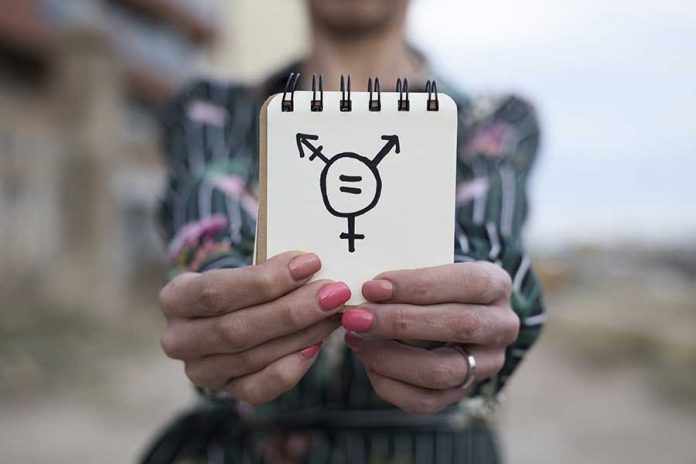New Jersey Attorney General Gurbir S. Grewal last week announced an LGBTQ-equality directive that applies to all state, county and local law enforcement agencies. Every law enforcement officer in New Jersey must be trained on the new guidelines — stemming from a report by the Transgender Equality Task Force — by June 1. All 21 county prosecutors must educate the public about the guidelines, and by Dec. 31, 2020, they must report to the attorney general’s office on their public education efforts.
The directive requires police officers to address people by the name and pronouns corresponding to their gender identity, even if that name isn’t on official records and forbids officers from publicly disclosing a person’s sexual orientation or gender assigned at birth unless the person consents to the disclosure or the disclosure is necessary for a “proper law enforcement purpose.”
“As a general rule,” officers should treat a person based on their gender identity regardless of gender assigned at birth, according to the directive.
Police officers should promptly respond to calls for help, regardless of the actual or perceived LGBTQ status of the 911 caller. Officers should refrain from profiling trans people as suspected criminals. And trans detainees shouldn’t be subjected to invasive body searches, according to the directive.
“A police officer may not consider a person’s [LGBTQ status] as a factor in deciding whether that person may be involved in criminal activity, or in deciding how to treat that person, except when an officer is pursuing specific leads in an ongoing criminal investigation or is trying to determine whether an individual matches the description in a [reported crime],” the directive states. “Law enforcement officers shall not inquire about details of a person’s sexual practices, genitalia, or anatomy, unless doing so is necessary to the ongoing criminal investigation — or the individual raises the issue without prompting by the officer, and the officer’s inquiries are tailored to ensure the individual’s safety and dignity during a law enforcement interaction.”
Additionally, trans detainees should be searched in a manner similar to cisgender detainees. “In those cases where only a female officer can search a cisgender woman, and only a male officer can search a cisgender man, then it is also the case that only a female officer can search a transgender woman and only a male officer can search a transgender man,” the directive states.
Moreover, law enforcement officers should never require transgender, nonbinary, and gender-nonconforming individuals to remove appearance-related items, including prosthetics, bras, clothes, undergarments, wigs, chest binders or cosmetic items during a search unless all individuals — regardless of gender — would be required to remove such items during that search, according to the directive.
Regarding detention in police stations, “a transgender woman shall be housed with other women, unless she requests otherwise, and a transgender man shall be housed with other men, unless he requests otherwise. [Individuals shall be permitted] to use restrooms consistent with their gender identity or expression, regardless of the gender that individual was assigned at birth and/or their anatomical characteristics,” the directive states.
The directive says that searches of nonbinary or gender-nonconforming individuals require an officer to ask the individual their preference with respect to the gender of the searching officer and perform searches in accordance with that preference where possible. “Any search that is not conducted in accordance with the individual’s stated preference must, where practicable, be reviewed and approved by a supervisor. The denial shall be documented in writing,” the directive states.
An officer should transport nonbinary arrestees with arrestees of the gender that is safest for them, taking into account which gender that individual expresses to be safest for them. A similar practice goes for the detention of nonbinary folks. Individuals should be detained with those of the gender that is safest for them, taking into account which gender they express to be safest for them.
Essential in the directive is the requirement of law enforcement officers to handle a trans detainee’s request for medical attention with the same urgency afforded to a cisgender detainee. Law enforcement officers should treat prescription hormones like any other prescription medication necessary for an individual’s health and wellbeing and document the circumstances of any medical treatment pursuant to applicable policies and procedures, according to the directive.
Lt. John Hayes of the New Jersey State Police summarized the new guidelines on YouTube. “No officer can ever harass or discriminate against anyone based on their [LGBT status],” Hayes said. “It’s that simple. No officer can stop, search or detain anyone for being gay, for being transgender or for being gender nonconforming. And every officer must take your request for help seriously — no matter your sexuality or gender identity, because we protect LGBTQ people just like we protect everyone else.”
Grewal said the new directive will improve relations between police and the LGBTQ community.
“No one should be afraid about interacting with police because of their sexual orientation or their gender identity,” said Grewal, in a press release. “That is why our law enforcement community, which proudly includes LGBTQ officers among our ranks, is committed to building trust with our LGBTQ residents. Building on the extraordinary work of law enforcement agencies across this country and right here in New Jersey, we’re ensuring that our officers will act in ways that promote the dignity and safety of LGBTQ individuals, whether they are victims, witnesses, suspects, arrestees, or other members of the public. Only by having the trust of our diverse communities can we fulfill our mission of protecting all New Jersey residents.”

